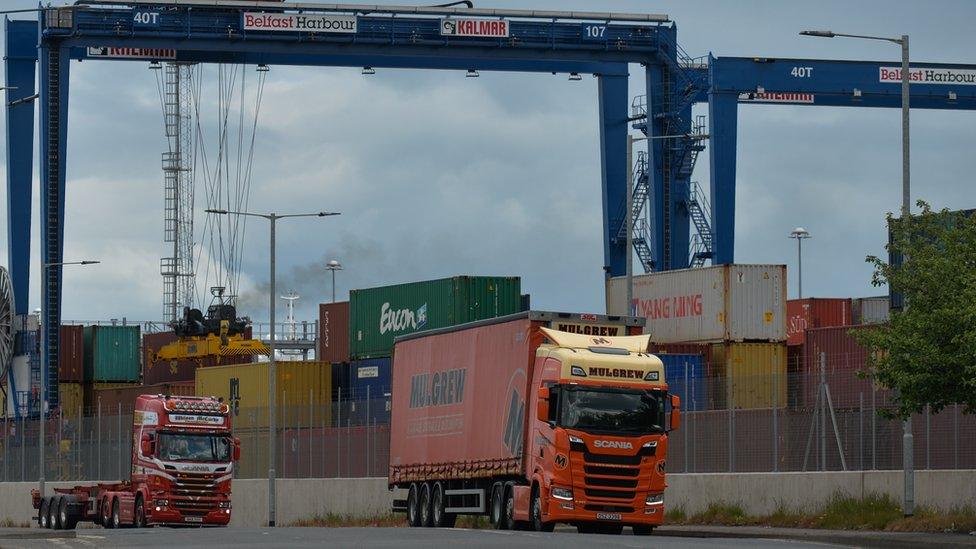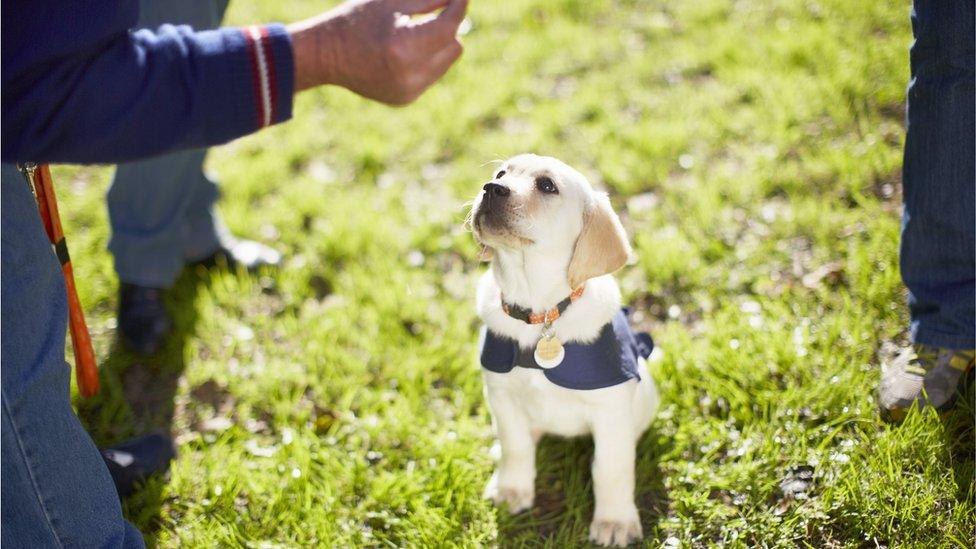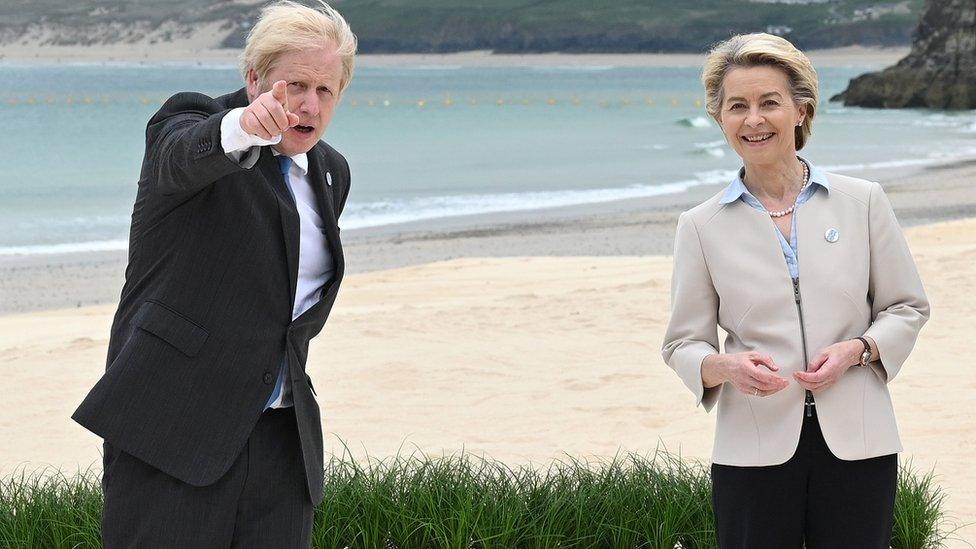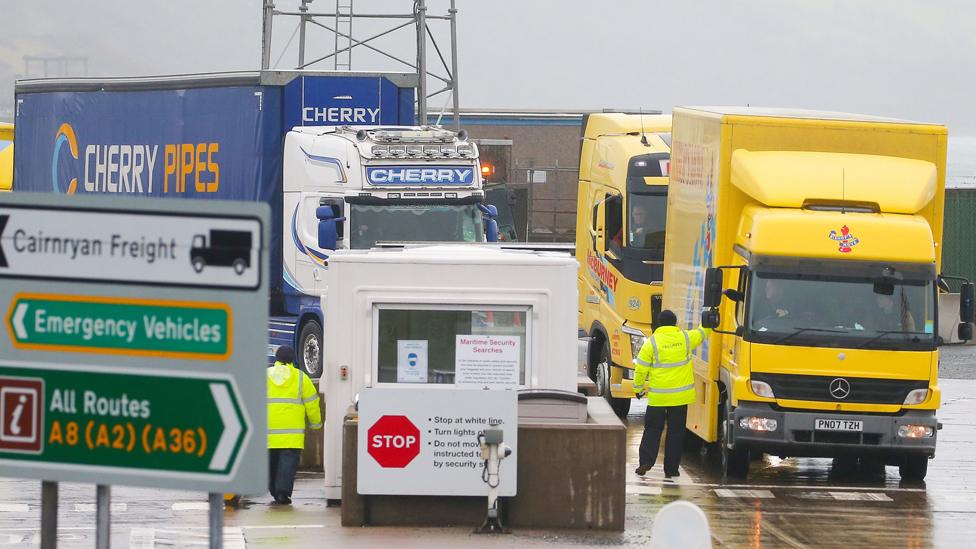Brexit: EU publishes proposals to simplify NI Protocol
- Published
- comments

Post-Brexit trading rules mean some goods are now subject to inspection when they arrive from Great Britain
The EU has published its proposals for simplifying some aspects of the Northern Ireland Protocol.
The proposals were announced in broad terms at the end of June and subsequently shared with the UK government.
They include a plan for ensuring the continued supply of medicines, external from Great Britain to Northern Ireland.
The UK government says the plans do not go far enough.
The Northern Ireland Protocol was agreed by the UK and EU to avoid a hard border in Ireland.
It does this by keeping Northern Ireland in the EU's single market for goods.
That has caused some difficulties in moving goods from Great Britain to Northern Ireland.
The European Commission has published two papers, one of which concerns animals and food, external.
It covers guide dogs, tagging of livestock, taking animals to agriculture shows in Great Britain and permitting the re-import of EU food products which have been stored in Great Britain.

Analysis: 'No agreement on a solution'
The EU and UK agree that the protocol is not working perfectly.
But they have very different ideas about how to fix it.
The EU has a two-pronged approach: firstly to crunch through the issues using the existing mechanism of the protocol in an attempt to find technical improvements.
Secondly, to offer the UK a Swiss-style agrifood agreement, which would eliminate most Great Britain-Northern Ireland checks.
The UK has rejected both these approaches and has instead suggested a fundamental renegotiation.

Currently the way the protocol operates means that Northern Ireland animals which are taken to Great Britain for agricultural shows are required to stay there for six months before they can be brought home.
The EU proposal would remove that requirement so long as the animals were not staying in Great Britain for more than 15 days and other animal health precautions are adhered to.
The EU also said that guide dogs can benefit from an existing flexibility in EU law but it needs a proposal from the UK on how to put that into operation.

New proposals have been made about guide dogs
The second paper concerns the movement of medicines from Great Britain to Northern Ireland.
The protocol means Northern Ireland is still in the EU's pharmaceutical regulatory system, unlike Great Britain.
'Too costly'
Northern Ireland gets most of its medicines from distributors in Great Britain, however that is due to become more difficult and expensive in January when a grace period ends.
That has led some manufacturers to say it will no longer be commercially possible for them to sell some medicines in Northern Ireland.
The protocol envisioned that some regulatory compliance functions for Northern Ireland medicines would be carried out in Northern Ireland. or the EU rather than Great Britain.
But the commission now accepts that is a problem, stating "it is proving too costly for certain operators currently based in Great Britain to move relevant regulatory compliance functions to Northern Ireland or the EU in respect of UK nationally authorised products for Northern Ireland...as required by the protocol".
It is now proposing that those compliance functions can continue to be performed in Great Britain with certain conditions, including labelling and enhanced enforcement.
The UK's Brexit Minister Lord Frost has previously expressed scepticism about this medicines plan suggesting it was still too complicated.
A UK government spokesperson said the EU proposals represented "only a small subset of the many difficulties caused by the way the protocol is operating".
"We need comprehensive and durable solutions if we are to avoid further disruption to everyday lives in Northern Ireland," they added.
Last week the UK published its own plans for radical change to the protocol.
Related topics
- Published22 July 2021

- Published21 July 2021

- Published2 February 2024
